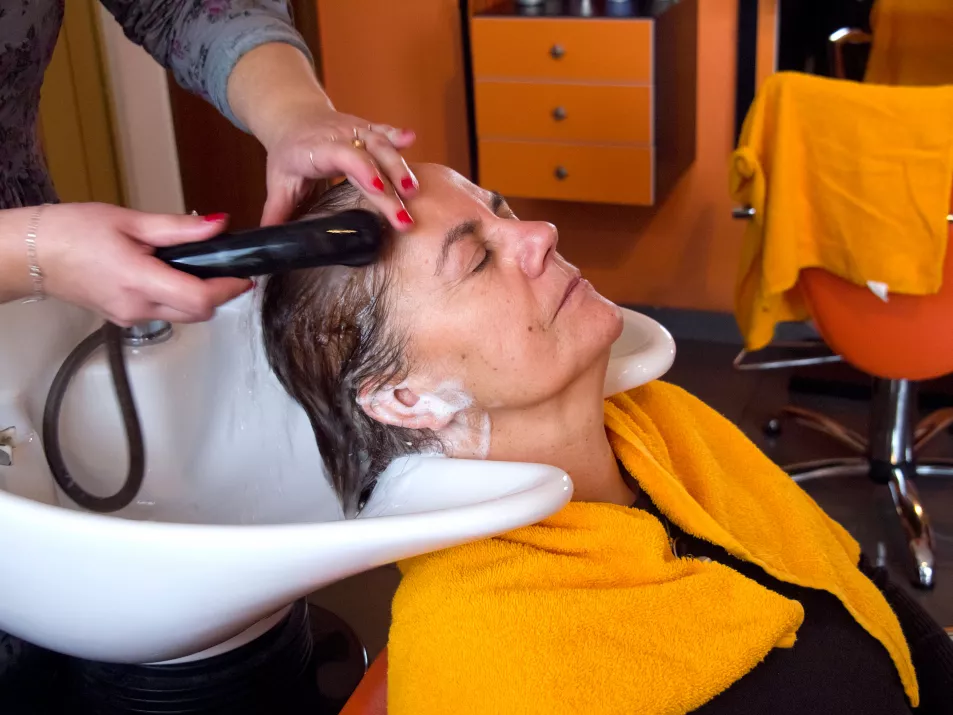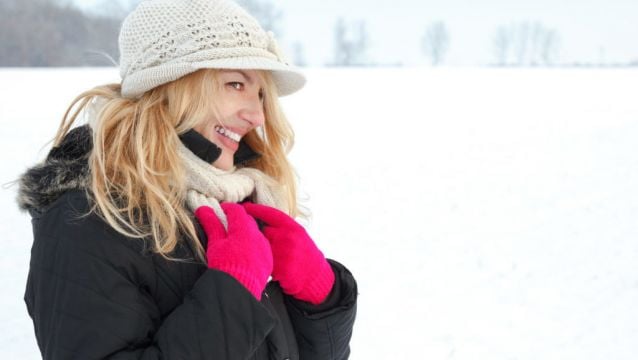Taking care of your hair and skin is always important, especially when freezing temperatures sweep the country.
Here’s how the cold snap could be affecting your hair and skin…
Hair
Tyler Moore, an expert stylist at Live True London said: “Winter can be damaging to your hair and the cold weather requires a different kind of hair care. Just as your skin is affected when the season turns, windy and dry days combined with central heating can cause brittle hair and dry strands.
“When the temperatures plummet, each hair type is going to experience varying levels of dryness, though all have an equal chance of dry, brittle strands that may be prone to damage.
“Afro hair will especially require a higher level of moisture to keep hair healthy and curls defined, so make sure you’re using plenty of nourishing ingredients such as shea butter as well as leave-in conditioners.”
Moore advises people to be flexible and adjust their hair-washing schedule to suit the changes in the weather.

“Washing your hair too often can strip it of its natural oils, which increases dryness and leaves it prone to breakage. Just as you would switch up your skincare, move to a more moisturising shampoo and conditioner, or reduce the amount of times you’re washing your hair. Remember to thoroughly condition hair after shampooing.”
Increasing the humidity in your home can also help to bring moisture back to your locks. “Central heating mixed with harsh cold temperatures can dry out hair and skin, so investing in a humidifier can bring moisture back,” Moore said.
“Winter is a great time to introduce a hair mask if you aren’t already using one. Nourishing and hydrating weekly treatments such as the FUL Intense Moisture Hair Mask (Boots) will ensure your hair is nourished, strengthen it through a cold snap, and give it the chance to recover from any heat damage too.”
But if you are short on time in the mornings, it might be tempting to leave the house with wet hair. However, during a cold snap, you’re increasing your chances of damage.

“Make sure your hair is thoroughly dry before going outside and facing the harsh elements. It’s better to use a heat protectant and blow dry than leave the house with wet hair.”
Skin
In colder weather, the skin and scalp encounter challenges such as dryness, irritation, and dullness.
“Exposed areas like the hands and face can be prone to chapping and cracking due to the harsh elements. The drop in temperature and humidity makes it challenging for the skin to retain moisture, resulting in itchy, dry skin, and cracked lips. And in some cases, can trigger conditions like xerosis or eczema, characterised by itchy, dry or reddish patches,” said Amanda Azzopardi, an aesthetic nurse and founder of Amanda Azzopardi Aesthetics.
But cold weather can affect all skin types differently.
Moore explained that it intensifies dryness for those with dry skin, prompting the use of rich moisturisers.

“Oily skin may experience reduced oil production, necessitating a balanced, non-comedogenic moisturiser. Combination skin sees a more pronounced contrast between dry and oily areas, requiring a targeted skincare routine.”
So how would Azzopardi advise people to take better care of their skin in winter months?
“Begin with a well-rounded diet, ensuring it includes essential nutrients such as protein, iron, and key vitamins vital for optimal hair health.
“Hydration is paramount for both hair and skin; maintain adequate water intake, use an indoor humidifier, and apply a nourishing moisturiser and shampoo to safeguard the skin’s protective barrier.”
Clinic lead at Face the Future, Kimberley Medd, agreed and added: “Humectants in moisturisers such as glycerin, hyaluronic acid and propylene glycol absorb water from the air and are oil-free. Emollients such as urea, lanolin and glycerin help replace oils in the skin.
“Often you’ll find both in a rich cream, and it’s important to check the ingredients you’re using as a thinner cream might not be enough to supply your skin the moisture it needs all year round.
“SPF is important to wear, even in cold snaps, and opting for a minimum of SPF 30 will help lock in moisture. The sun is often out when it feels the coldest in the day, meaning our UV exposure can be high, even in cold weather. SPF acts as a skin barrier protection from UV rays, but also adds further skin protection to the skin’s barrier to shield from the cold air.”







